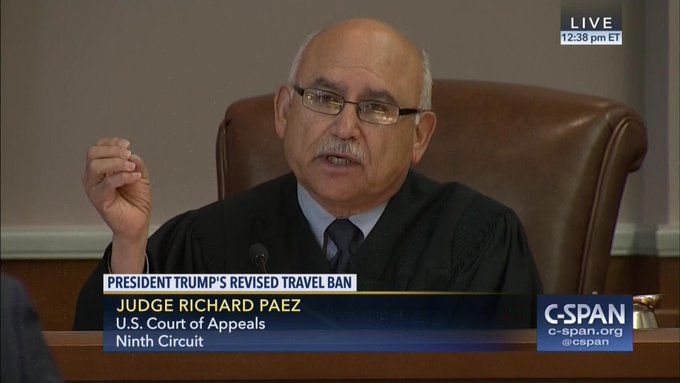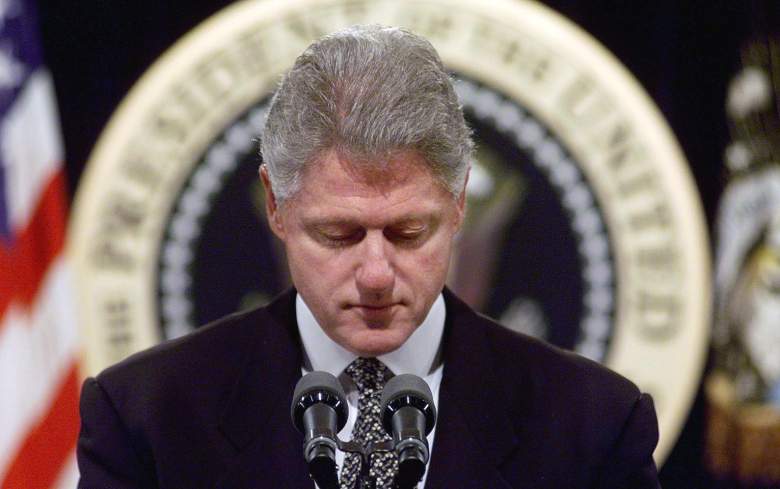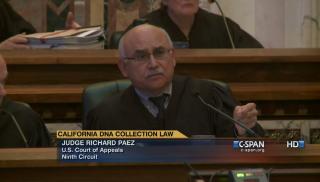The 9th Circuit Court of Appeals is currently weighing the legality of Donald Trump’s travel ban.
A panel of three judges is hearing the case today; this is a different panel than weighed the legality of Trump’s ban earlier this year. The panel hearing the case on May 15th consists of Ronald Gould, Michael Hawkins, and Richard Paez.
So who is Judge Richard Paez, who sits on the 9th Circuit Court of Appeals? Here’s what you need to know.
1. He Was Nominated by Bill Clinton
Richard Paez was nominated to the 9th Circuit Court of Appeals by President Bill Clinton.
This nomination came in January 1996. However, Paez was not confirmed for over four years, on March 9th, 2000. This was the longest time any judicial nominee had ever waited to be confirmed, according to Deseret News.
At the time, Bill Clinton and Al Gore complained of Republican obstruction, with Gore suggesting that part of the reason was because Paez is Mexican.
“We’ve seen a troubling pattern of the Republican Party standing against qualified judicial nominees who happen to be women and minorities,” Al Gore said, according to Deseret News.
2. His Nomination Was Opposed by Jeff Sessions
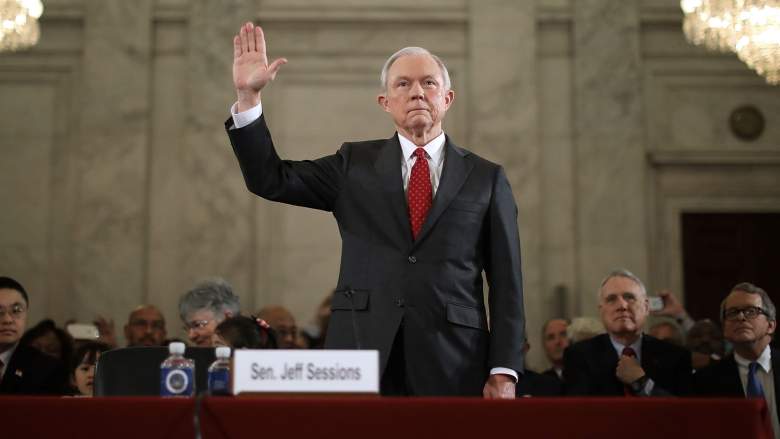
Sen. Jeff Sessions is sworn in before the Senate Judiciary Committee during his confirmation hearing to be the U.S. attorney general January 10, 2017. (Getty)
When Richard Paez’s confirmation was delayed for four years in the 1990s, one of the people who was leading the charge against Paez was Jeff Sessions, the man who has since become the attorney general of the United States.
In particular, Jeff Sessions alleged that Paez had conspired with the Clinton administration to ensure that a Democratic fund-raiser, John Huang, did not receive any jail time.
“We need to have a hearing on it and find out how it happened,” Sessions said at the time, according to Deseret News.
3. He Has Said That Courts Must Sometimes Step in to Resolve Political Questions
When Richard Paez was nominated by President Bill Clinton, conservatives complained that he was too liberal and that he would be a judicial activist while on the court.
They pointed to comments Paez had made that suggested the court should sometimes step in to resolve political questions when politicians can’t.
“I appreciate…the need of the courts to act when they must, when the issue results from the failure of the political process to resolve a certain political question,” he once said, according to Human Events. “There’s no choice but for the courts to resolve the question that perhaps ideally and preferably should be resolved through the legislative process.”
Some news outlets also criticized the fact that in 1995, Paez delivered a speech speaking out against California’s Proposition 187 and Proposition 209, during a time when both of those initiatives were facing litigation.
“The Latino community has, for some time now, faced heightened discrimination and hostility, which came to a head with the passage of Proposition 187,” Paez said in a speech, according to The Washington Post. “The proposed anti-civil rights initiative will inflame the issues all over again, without contributing to any serious discussion of our differences and similarities or ways to ensure equal opportunity for all.”
4. He Ruled Against Arizona’s 2010 Immigration Law
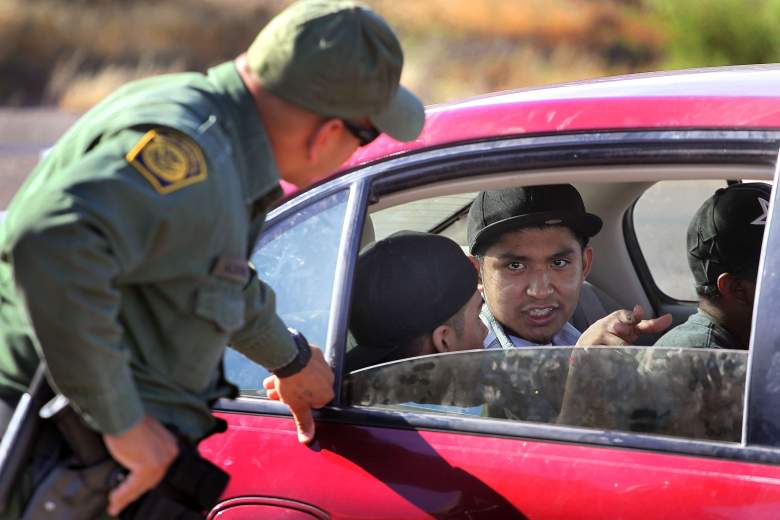
Border Patrol agent checks vehicles for illegal immigrants and contraband at a roadside checkpoint June 1, 2010 near Sasabe, Arizona. (Getty)
This travel ban case won’t be the first time that Judge Paez has ruled on a major immigration case.
In 2011, Paez ruled against many of the most controversial aspects of Arizona SB 1070, Arizona’s famously strict immigration law. The court upheld a lower court’s ruling preventing parts of the law from going into effect.
Paez said in the majority opinion that the Arizona law was infringing on federal immigration law.
“Arizona has attempted to hijack a discretionary role that Congress delegated to the Executive,’’ Paez said, according to The Washington Post.
5. He Ruled That a Resolution Urging the Vatican to Support Same-sex Adoptions Did Not Violate the Establishment Clause
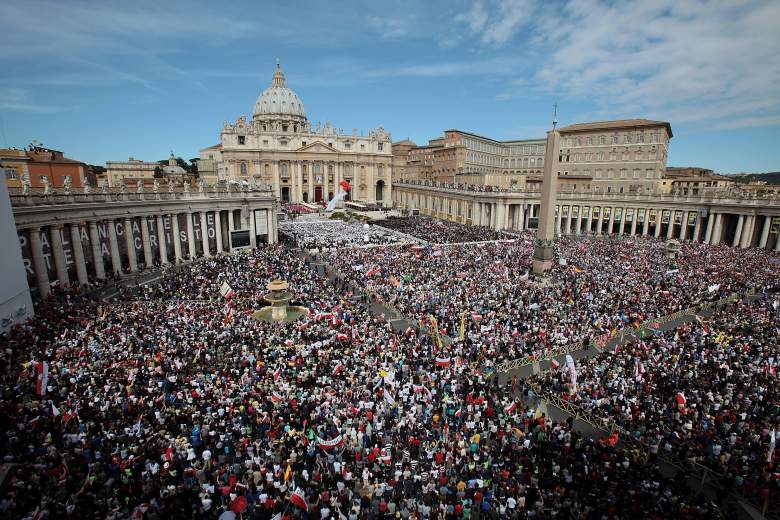
A general view of St. Peter’s Square during the John Paul II Beatification Ceremony held by Pope Benedict XVI on May 1, 2011 in Vatican City, Vatican. (Getty)
Another notable case Judge Paez was a part of came in 2011.
This concerned a San Francisco resolution which said that the Vatican should withdraw its directive against same-sex adoptions. It was argued that this violated the Establishment Clause, but Paez did not agree.
“Properly contextualized, the Resolution does not have the purpose or primary effect of expressing hostility towards Catholic religious beliefs, and it does not foster excessive government entanglement with the Catholic Church,” Paez ruled.
